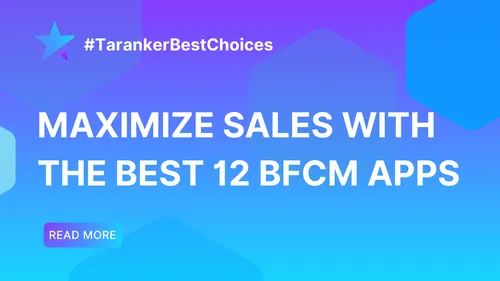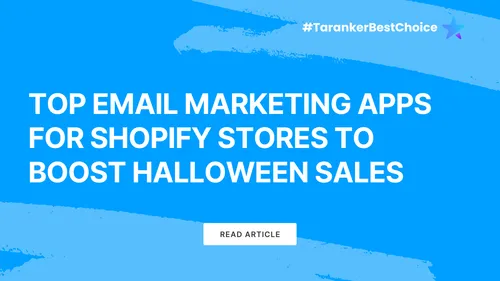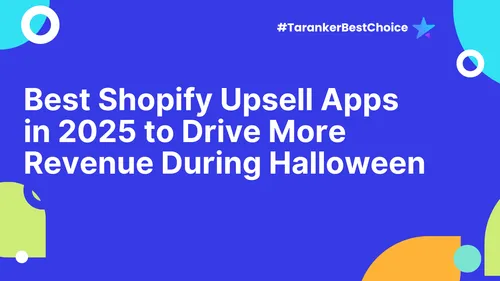Driving organic traffic to your Shopify store is a cornerstone of e-commerce success, and it all begins with effective keyword research. Keywords are the bridge between what your potential customers are searching for and the products you offer. By identifying the right terms and phrases, you can improve your store’s search engine rankings, attract the right audience, and boost conversions.
Keyword research is about more than just finding popular words—it’s about understanding your customers' search intent and tailoring your strategy to match their needs. From uncovering niche-specific keywords to analyzing search trends, mastering this process allows you to optimize your Shopify store for maximum visibility and impact.
In this guide, we’ll walk you through the essential steps for conducting keyword research effectively, including tools, techniques, and strategies that can help you outshine the competition and grow your online business. Whether you’re just starting or looking to refine your approach, this article is packed with actionable insights to set your Shopify store up for SEO success.
1. Understand Your Target Audience

Start by identifying the needs, preferences, and pain points of your ideal customers. What are they looking for? What solutions are they seeking? This understanding helps you create content that resonates with their search queries. For instance, if you sell fitness equipment, your target audience might search for "best home gym equipment" or "affordable dumbbells."
Action Step: Build a buyer persona that includes their goals, challenges, and search behaviors.
To refine this further, you can explore additional strategies in 7 Effective Steps to Optimize Product Listings for SEO on Shopify.
2. Use Keyword Research Tools

There are several tools designed specifically to help you find relevant keywords. Here are a few popular ones:
-
Google Keyword Planner: Offers keyword ideas based on real-time search data.
-
Ubersuggest: Provides keyword suggestions, search volume, and competition analysis.
-
Ahrefs: An advanced SEO tool that provides keyword difficulty, search volume, and competitive insights.
-
SEMrush: Gives detailed information on keyword competition, trends, and related searches.
Start with broad terms related to your product, then use these tools to discover long-tail keywords—more specific phrases like "buy affordable home gym equipment online."
3. Analyze Competitor Keywords

Look at what your competitors are ranking for. Tools like Ahrefs and SEMrush allow you to input a competitor’s URL and view the keywords they’re targeting. This gives you insights into what’s working in your niche and helps identify keyword opportunities that you may not have considered.
Action Step: Analyze the top-ranking competitors and note the keywords they use in product descriptions, blogs, and metadata.
4. Focus on Buyer Intent Keywords

Not all keywords have the same intent. Focus on keywords that reflect the intent of users looking to make a purchase or take action. For example, someone searching for "best organic skincare products" likely has the intention to buy, making it a more valuable keyword than a generic term like "skincare tips."
Buyer intent keywords include:
-
Transactional: Keywords like "buy," "shop," or "order" followed by product names.
-
Commercial Investigation: Terms such as "best," "reviews," or "comparison" often indicate someone is close to making a purchase decision.
Learn how to utilize such keywords effectively in your marketing campaigns by reading How to Create Discount Codes and Promotions in Shopify: A Step-by-Step Guide.
5. Leverage Long-Tail Keywords
While short, broad keywords like “fitness equipment” might have high search volume, they also tend to have tough competition. Long-tail keywords, such as “affordable dumbbells for home gym,” may have lower search volume, but they often convert better because they target specific, actionable queries.
Use keyword tools to find related long-tail keywords that align with your products. Long-tail keywords are easier to rank for and often indicate strong buyer intent, leading to higher conversions.
6. Use Google’s Autocomplete and Related Searches
Google's autocomplete feature and "related searches" section at the bottom of the search results page are great for discovering new keyword ideas. Simply type a product or service into Google’s search bar, and it will show you commonly searched terms related to your query.
For instance, typing “organic skincare” might bring up suggestions like "best organic skincare for sensitive skin" or "organic skincare routine."
7. Organize Keywords by Relevance and Search Volume

Once you have a list of potential keywords, it’s time to prioritize them. Focus on keywords with:
-
High search volume: Keywords that lots of people are searching for.
-
Low to medium competition: These keywords offer a better chance of ranking.
-
High relevance: Ensure the keywords align closely with the products or content on your Shopify store.
Organize your keyword list into categories such as product pages, blog content, and category pages. This will help you strategically target different sections of your store for SEO improvement.
8. Track Performance and Adjust

Keyword research isn’t a one-time task. Use tools like Google Analytics and Google Search Console to monitor how well your chosen keywords are performing. Look at metrics like:
-
Keyword rankings: Track your position in search results over time.
-
Traffic: Identify which keywords are driving the most visitors to your store.
-
Conversions: Focus on the keywords that lead to the highest sales or signups.
Regularly revisit your keyword strategy and refine it based on performance data.
Conclusion: Keyword Research for Long-Term Shopify SEO Success
Effective keyword research is the foundation of any successful Shopify SEO strategy. By understanding your audience, leveraging tools, focusing on buyer intent, and refining your approach over time, you’ll drive more targeted traffic to your Shopify store. This, in turn, will help you increase visibility, attract customers, and boost sales.
Start implementing these steps today, and watch your Shopify store climb the search engine rankings!













